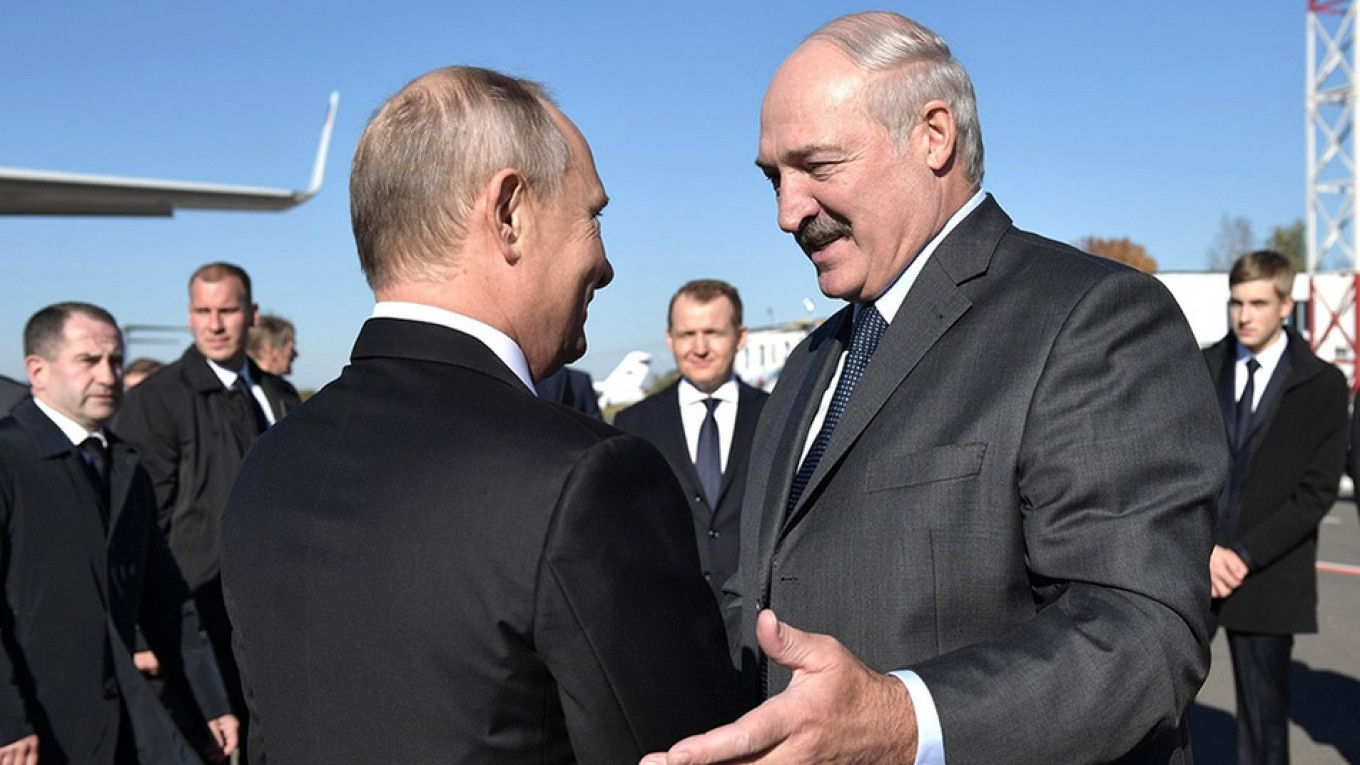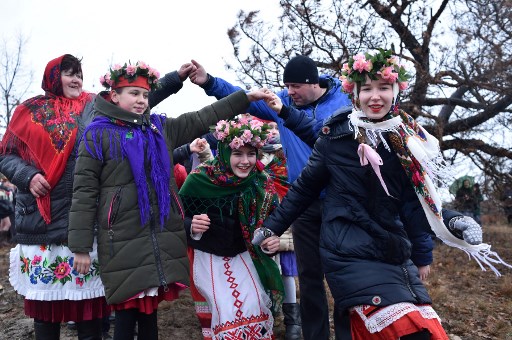Re-Inventing The Soviet Union
"This [an archaeological-discovered chess piece dating back a millennium] means that one thousand years ago people on this spot [Haradzisca, Belarus] were sitting playing chess."
"Our neighbours' capitals -- Moscow Warsaw, Vilnius -- did not even exist at this time, but here we were playing chess."
"If you don't revive peoples' national memory, the people can, sooner or later, be turned into something else."
Gleb Labadzenka, Belarus poet
"Of course, I am Belarusian and my mother tongue is Belarusian -- though I don't speak it because the whole practice of my life has been Russian language and Russian culture."
"But I feel myself Belarusian, that I am in Belarusian land and this is my land."
Svetlana Alexievich, Belarusian 2015 Nobel Prize in Literature Laureat
"I am not against Russia, I am just not interested in Russia."
"We have been living side by side for a thousand years. It is time to move on. We are Europeans, not little or inferior Russians."
Pit Pawlaw, guitarist, rock band NRM, Belarus
Aleksandr Lukashenko, the authoritarian Belarus president, had reached an agreement with Russian President Vladimir Putin, soon after Mr. Lukashenko was invested as president, for a "union state" position for his country with Russia Where Russia and Belarus had agreed in the mid-1990s to bring Belarus back into the Russian Federation's orbit. That agreement began with the elimination of immigration and custom controls for the citizens of each country.A 2019 stamp dedicated to the 100th anniversary of the BSSR (Byelorussian Soviet Socialist Republic)
The agreement was to have progressed toward a common legislature, flag, anthem, army and currency. But it stalled, and Belarus did not venture so far as to eliminate its own. Now, speculation has it that Vladimir Putin, looking to his future beyond the end of his presidential term looming in 2024, an opportunity could be lost if full integration failed to proceed. A new post for a merged superstate could offer Mr. Putin a future role since he is constitutionally unable to remain as president of Russian after 2024.
However, Moscow's actions in Ukraine have given Belarus second thoughts. The year 2014 was a turning point, it would appear, ten years after he came to office, when Mr. Lukashenko observed Russian troops sent into eastern Ukraine. To defend, as Mr. Putin said, Russian speakers who belong to "Russky Mir"; the Russian world. Capping it all off with the annexation of Crimea. Of course Russia's military adventure previously in Georgia when it made off with South Ossetia was another preview.
 |
| Vladimir Putin and Alexander Lukashenko / Kremlin.ru |
Mr. Lukashenko -- who speaks Russian mostly in public -- now occasionally uses Belarusian which he no longer derides as 'inferior'. He has also adopted a new "informational security concept", whose purpose is to counter propaganda from Russia belittling Belarusia statehood, language and history separate from Russia. The ongoing struggle between Moscow and former satellite countries over which it had dominion has created a newer dynamic.
An almost-universal resistance to Russian overtures to return to the past. Mr. Lukashenko regards another past entirely, now, one vastly predating the U.S.S.R.'s dominance. The history of Polotsk in north Belarus, the center of an early Slavic power long before Muscovy, the precursor of Russia arose. Recently in Brest, people appeared in numbers to take part in a program Mr. Labadzenka set up, to teach and promote Belarusian.
Sadly, former satellite countries of the U.S.S.R. are not invested in re-visiting the history of their vassal-state positions in the Union of Soviet Socialist Republics.
 |
| Villagers play traditional games as they take part in a Chyrachka rite during the Shrovetide celebration in the village of Tonezh, some 280 km of Minsk, on March 10, 2019. AFP |
Labels: Alexandr Lukashenko, Belarus, Russian Federation, Union, Vladimir Putin

<< Home